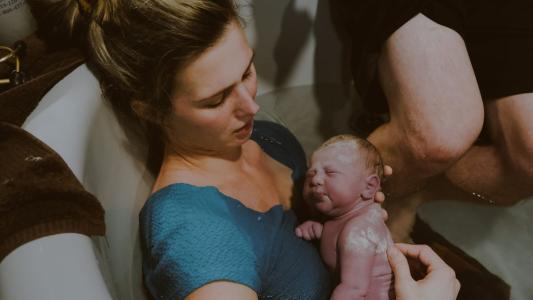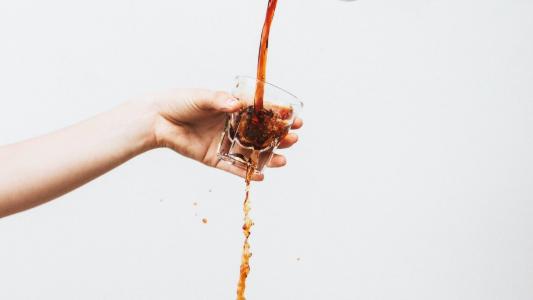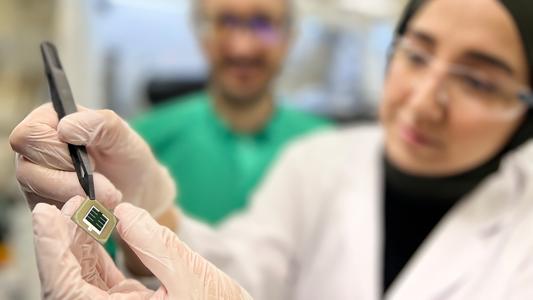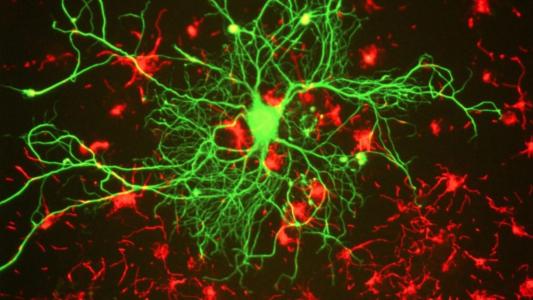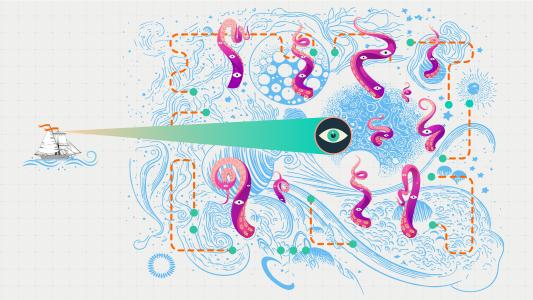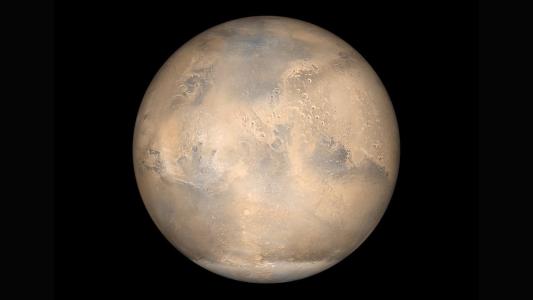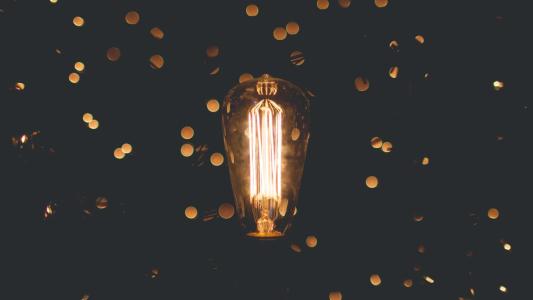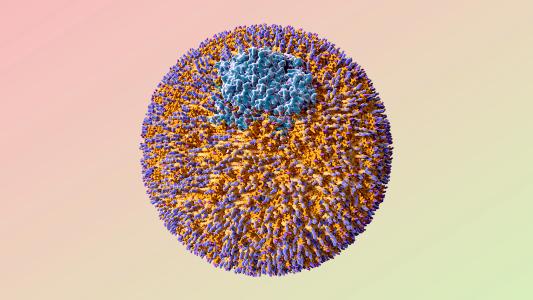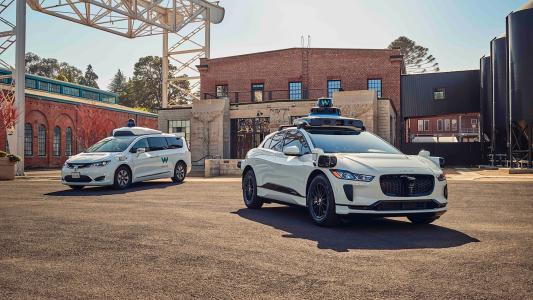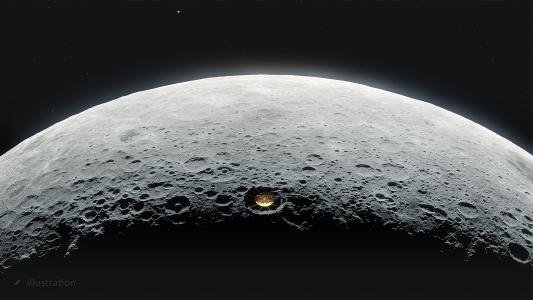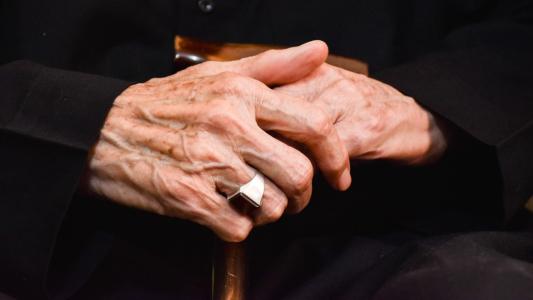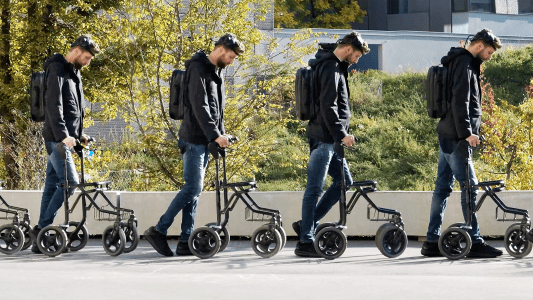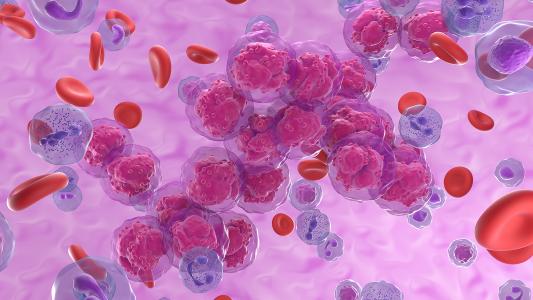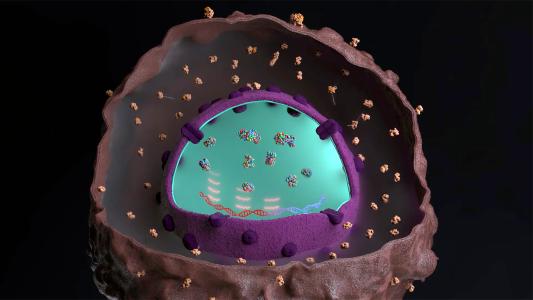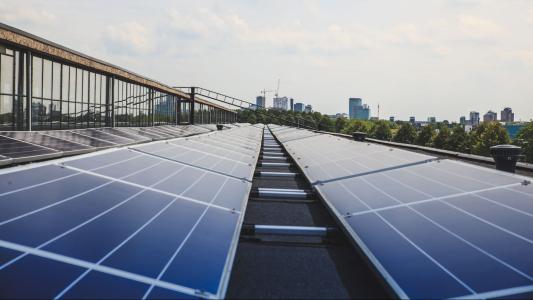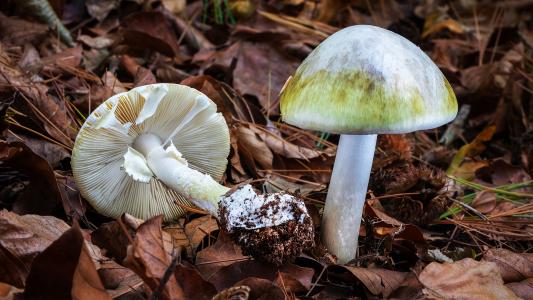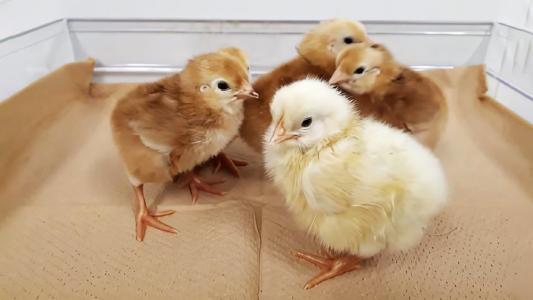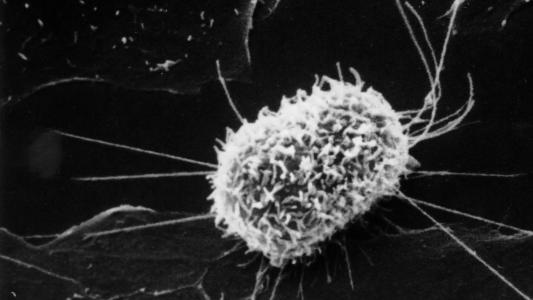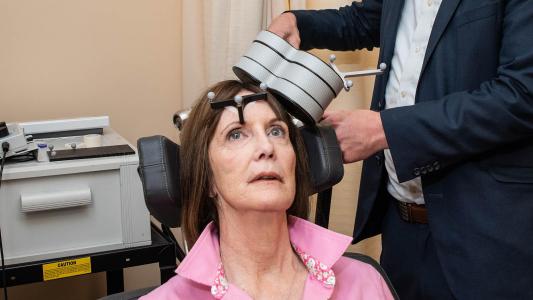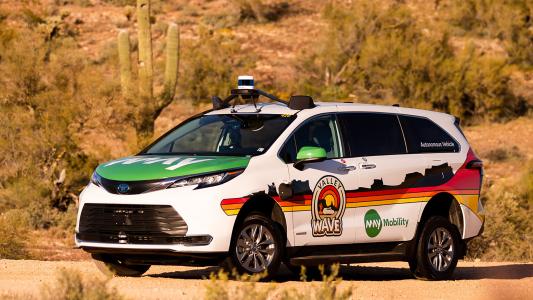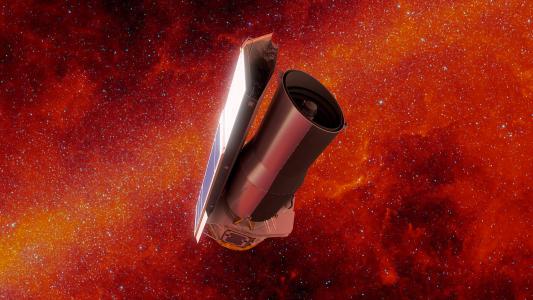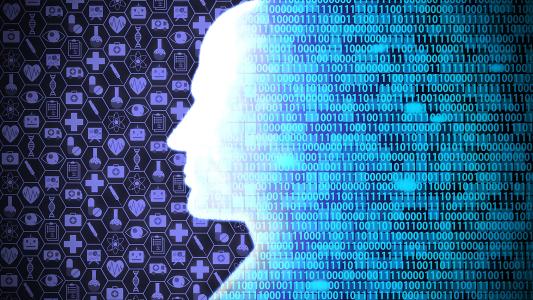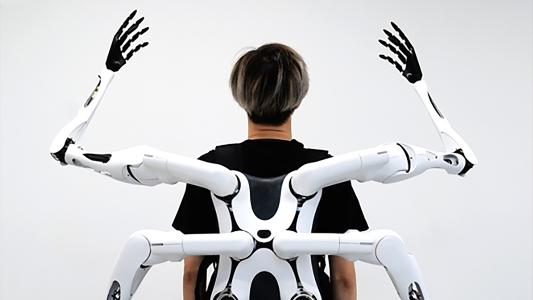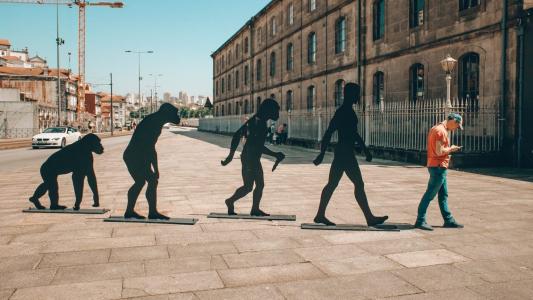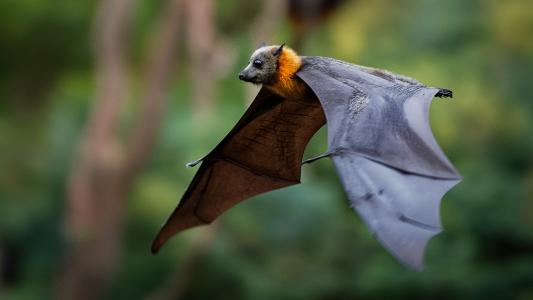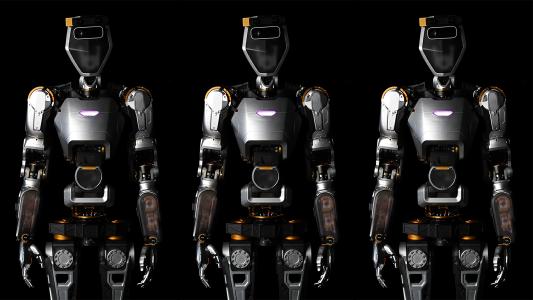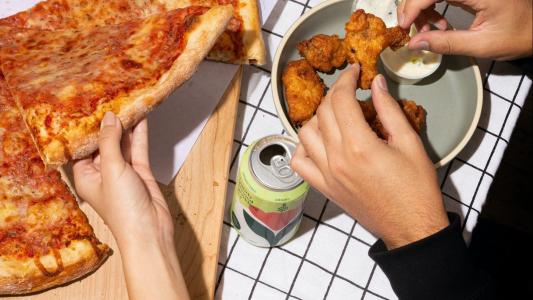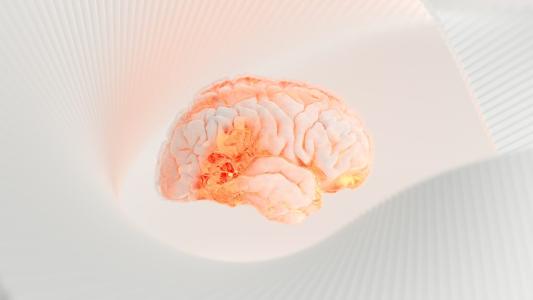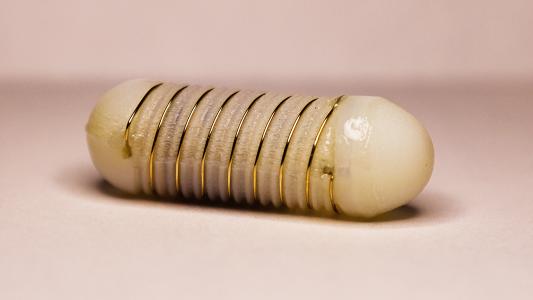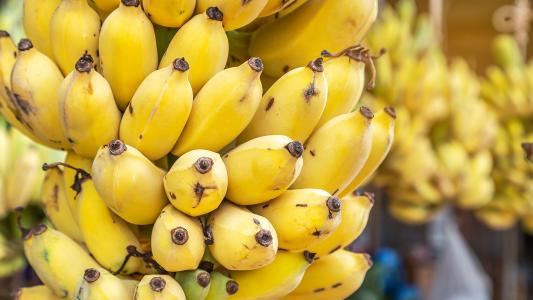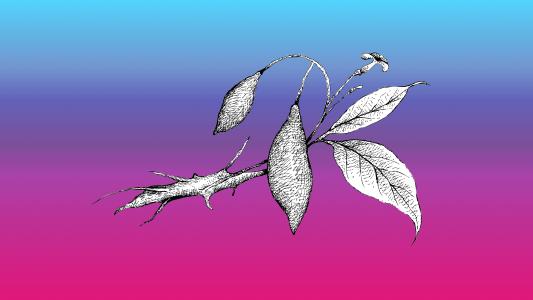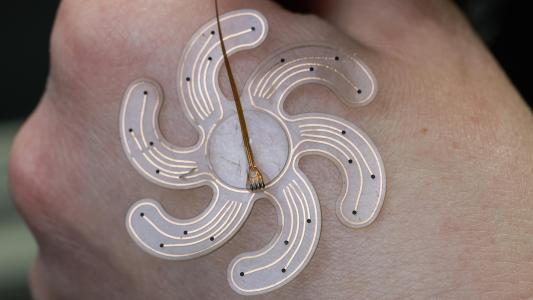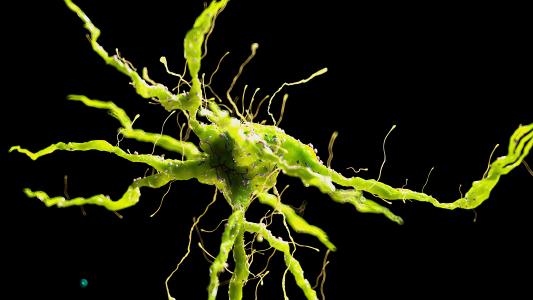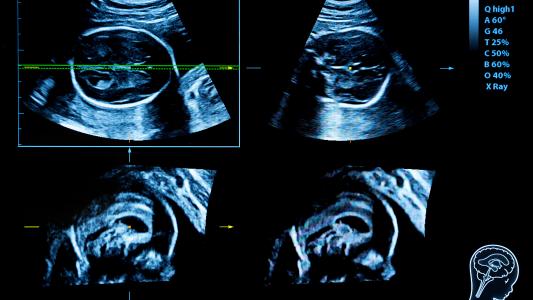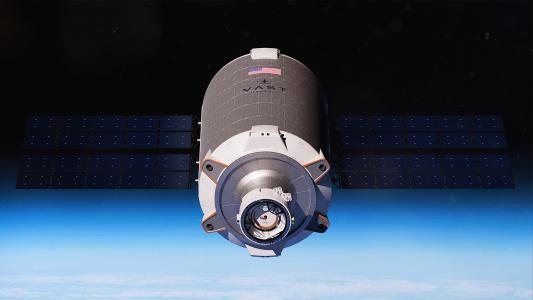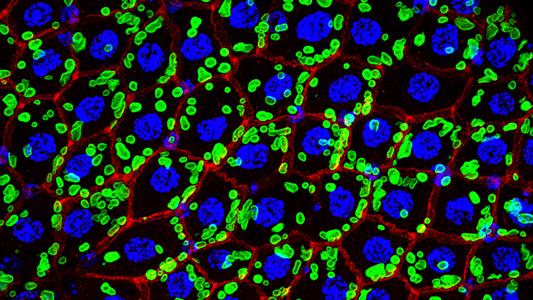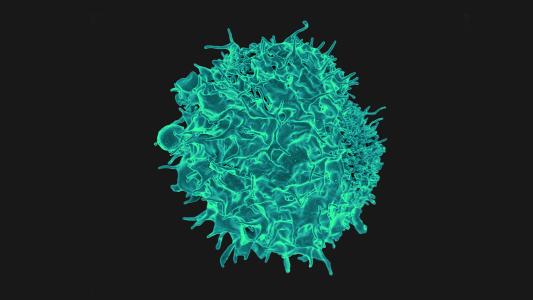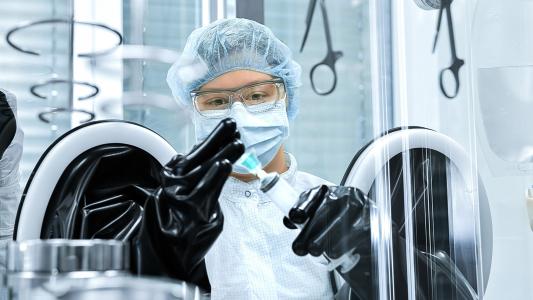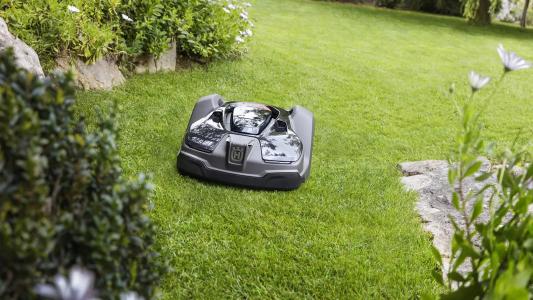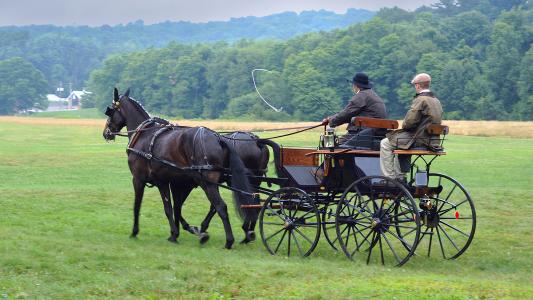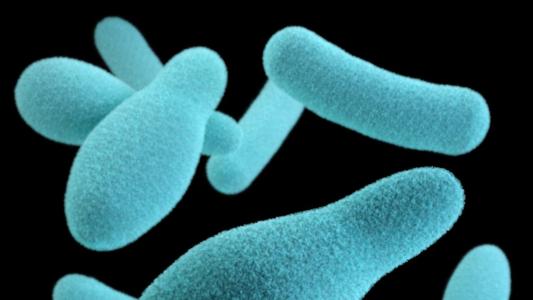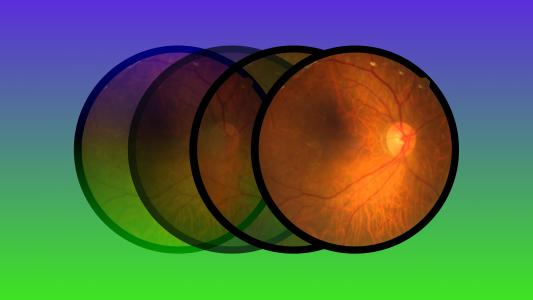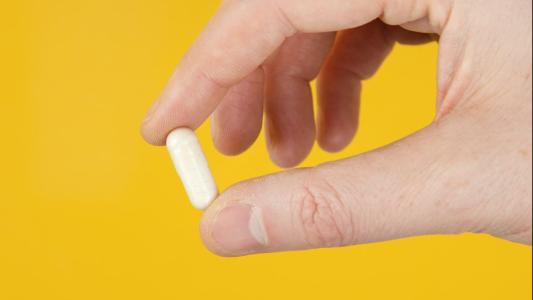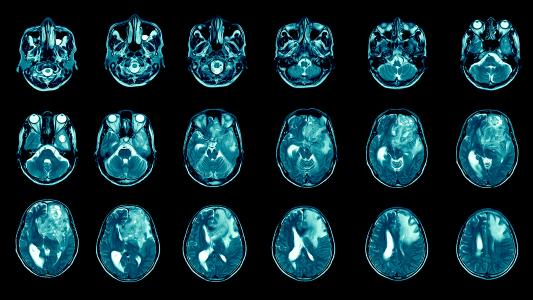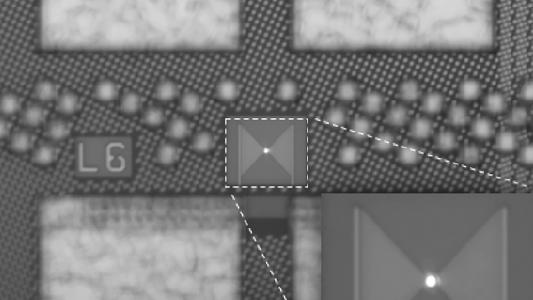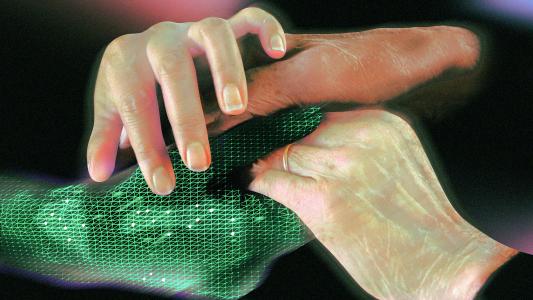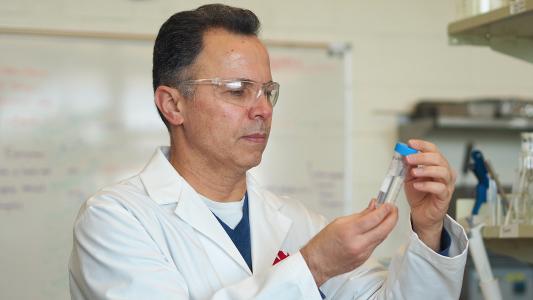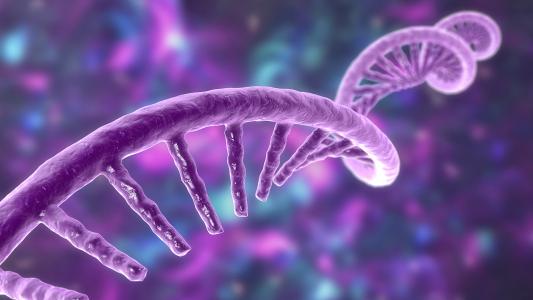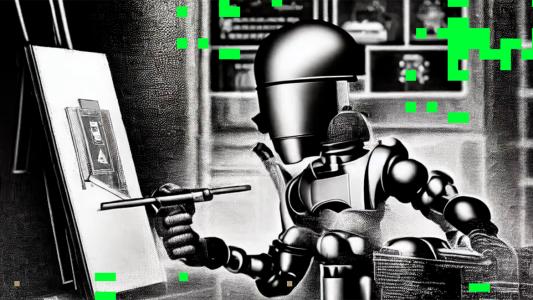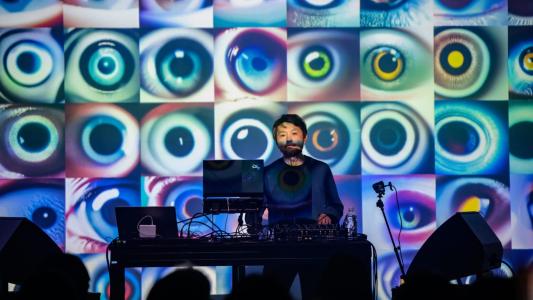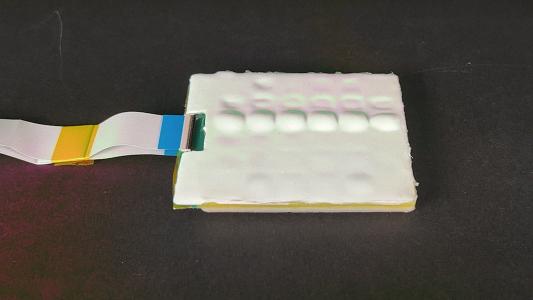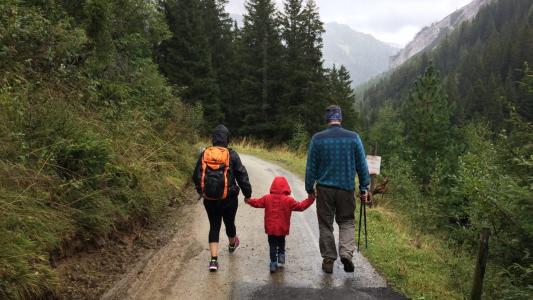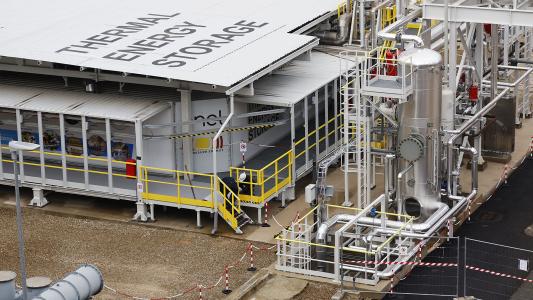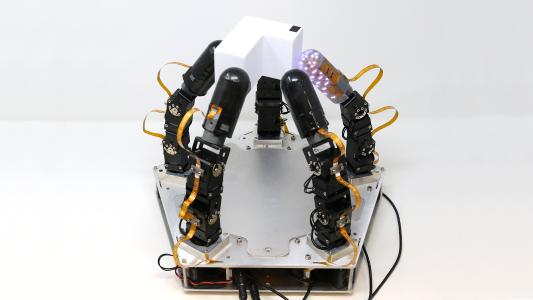The radical drop in maternal mortality was a public health miracle
In 1758 in Sweden, 1205 mothers died for every 100,000 live births, which was likely representative of the global maternal mortality rate.
Watch this autonomous drone deliver beer and peanuts in a baseball stadium
Guests at the opening of an autonomous systems conference witnessed a drone delivery at Denver's Coors Field.
Nope, coffee won’t give you extra energy
You might feel like coffee gives you the energy to get through the day – but chances are, you're not getting as much as you think.
NASA spots an enormous water plume erupting on Saturn’s ocean moon
Using the James Webb Space Telescope, researchers are gaining new insights into Enceladus, which holds a sea beneath its icy surface.
New “tandem” solar cell breaks world record
A new tandem solar cell containing layers of silicon and perovskite has demonstrated an unprecedented efficiency of 33.7%.
Zapping the brain during sleep helps memories form
Brain stimulation during sleep appears to help with memory consolidation, suggesting a new way to treat people with memory disorders.
Ancient technology that was centuries ahead of its time
These forward-thinking inventions are often called "ahead of their time." They are reflections of the ingenuity of their civilizations.
If we’re going to label AI an “extinction risk,” we need to clarify how it could happen
AI comes with risks that we need to take seriously, but none of the claims that it is going to cause the extinction of humanity explain how.
Adult-made neurons mature longer, have unique functions
Neuroscientists don't know the degree to which adult brains generate new neurons, but adult-made neurons appear to have more "mature" functions.
Stocks demystified
In partnership with Million Stories
Here’s how younger generations can work the markets (and avoid the hype).
4 dangers of artificial intelligence—and why they won’t end the world
AI doomsday fears are vague. This framework for the future of AI offers concrete solutions.
How to terraform Mars, without nukes, on a budget
Terraforming Mars has been a dream for decades; here’s how we might get it started today.
The first 10 minutes of sleep can unlock your creative potential
According to prior research, the first ten minutes of sleep, called N1, can provide a creative boost when it comes to solving problems.
CRISPR tool slashes bad cholesterol by 56% in monkeys
Tune Therapeutics has successfully lowered the cholesterol levels of monkeys using a version of CRISPR that doesn’t permanently alter DNA.
Watch: Autonomous helicopter takes flight at sea
Airbus' VSR700, an autonomous helicopter designed for naval use, has successfully completed test flights at sea.
Chronic pain can be objectively measured using brain signals
Even though pain is universal and we know it happens in the brain, we've never before had a way to objectively measure its intensity.
AI is already making “functional music” for major label artists
UMG has teamed up with an AI startup to turn its artists’ music into “soundscapes” designed to help listeners sleep, focus, and more.
New nasal spray aimed at reversing fentanyl overdoses is now approved
A new overdose-reversing spray that works fast but lasts longer has been approved by the FDA, and will be available by the fall at earliest.
Understanding just how big solar flares can get
Recasting the iconic Carrington Event as just one of many superstorms in Earth’s past, scientists reveal the potential for even more massive eruptions.
Fully self-driving cars are finally available on Uber
Uber has teamed up with robotaxi operator Waymo to make rides in fully autonomous cars available to its customers.
A massive moon telescope could solve the mystery of the “Cosmic Dark Ages”
NASA hopes a massive radio telescope on the moon will be able to reveal what was happening during the mysterious “Cosmic Dark Ages."
Do we finally know what causes Alzheimer’s?
The first treatments proven to slow cognitive decline in Alzheimer’s are helping settle a decades-long debate about how the disease starts.
Here’s how growing plants on the Moon could benefit Earth
Making plants grow on the Moon could be instrumental in helping gardens to grow greener on Earth in the face of climate change.
Paralyzed man walks again using only his thoughts
A man with paralyzed legs is walking again thanks to a “digital bridge” between his brain and a spinal stimulator.
This “bridge” between chemo and cancer solves a big problem for treatment
To improve leukemia treatment, Australian researchers have created a bispecific antibody that connects chemo drugs to cancer cells.
Stanford study finds AI improves the performance of teachers and students
Stanford researchers have developed an AI that can provide useful feedback to teachers, helping them to increase student uptake.
For the first time, astronomers have detected a radio signal from the massive explosion of a dying white dwarf
Patience and persistence pays off in ways researchers never expected, allowing them to hear the dying whispers of a distant star.
This new watch-like wearable measures blood pressure 24/7
A Swiss company has developed a lightweight, comfortable bracelet which can provide constant and accurate information about blood pressure.
Pill version of obesity drug reduced weight almost 13% in new trial
Novo Nordisk has announced positive results for an oral version of the popular weight loss drug sold as Ozempic and Wegovy.
AI is going to revolutionize the weather forecast
A tech startup in San Francisco is going to change how the world sees the weather.
Cancer treatment is about to get a reboot, thanks to AI
Techniques borrowed from astrophysics are helping to advance personalized cancer treatments beyond what genetics can tell us.
These 4 charts show the unstoppable growth of solar
Solar is growing fast enough to displace fossil fuels from the entire global economy before 2050, but infrastructure needs to keep up.
Watch the world’s largest plane drop a hypersonic aircraft
Aerospace company Stratolaunch has dropped a hypersonic aircraft from its record-breaking Roc launch platform for the first time.
“Please do not assume the worst”: Students want colleges to teach them how to use AI the right way
Students want to work with their communities, universities, and governments to figure out how to engage productively and responsibly with AI.
Buying a home in today’s economy is expensive – but not impossible
In partnership with Million Stories
Most people use a mortgage loan to buy their first home. Before you can borrow money, though, you’ll have to prove that you can pay it back.
CRISPR uncovers possible antidote for death cap mushroom poisoning
Researchers have figured out how the mushroom's main toxin enters human cells — and maybe how to stop it.
Graphene is a Nobel Prize-winning “wonder material.” Graphyne might replace it.
A two-dimensional material made entirely of carbon called graphene won the Nobel Prize in 2010. Graphyne might be even better.
New kind of chicken lays eggs that don’t have allergy protein
Newly created gene-edited hens lay eggs without ovomucoid, the protein most likely to trigger an egg allergy.
Did life evolve more than once? Researchers are closing in on an answer
Current scientific consensus is that life emerged from non-living molecules in a process called abiogenesis. But if life emerged once, why not more times?
Astronomers find Earth-sized planet covered in volcanoes
An Earth-sized exoplanet 90 light years away may be covered in active volcanoes — and home to extraterrestrial life.
Depression treatment reverses “backwards” brain signals
Transcranial magnetic stimulation (TMS) appears to relieve depression by correcting brain signals that are traveling the wrong direction.
Older people were 3x stronger at the end of this science-backed 8-week program
But what if you’re in your 60s, 70s, 80s or 90s? Is it “too late” to build muscle and fight sarcopenia? Here’s what the research says.
Autonomous public transportation rolls out in Arizona
Sun City, Arizona has launched a free transit system featuring self-driving cars for its retirement-age residents.
NASA’s last “Great Observatory” could be coming out of retirement
A startup’s audacious plan to revive NASA’s retired Spitzer Space Telescope just secured a $250,000 Space Force contract.
The AI healthcare revolution has begun
The ability of AI to diagnose diseases, discover drugs, and even perform surgery is increasing rapidly — but will patients accept Dr. AI?
This robotic arm study is preparing us for our cyborg future
A new study at the University of Tokyo aims to find out how people feel using robotic arms — and sharing them with others.
We’re analysing DNA from ancient and modern humans to create a “family tree of everyone”
Genetic genealogy not only helps us understand where we came from, but it could also be used for tracing the origin of genetic mutations.
Something found in bats could help us survive infections and inflammation
This protein may help bats survive viral infections and could be the springboard for new anti-inflammatory drugs.
A general-purpose robot is entering the workforce
Tech startup Sanctuary AI has unveiled Phoenix, a general-purpose robot designed to perform many workplace tasks.
Like hungry locusts, humans can easily be tricked into overeating
Our bodies crave more food if we haven’t had enough protein — especially if we’re reaching for ultraprocessed foods.
Watch NASA’s one-of-a-kind snake robot training to go to space
NASA has released a video of its one-of-a-kind snake robot EELS slithering across a variety of challenging terrains.
Discovery finally uncovers how melanin blocks UV
An international team of researchers have isolated and analyzed a component of melanin, which protects us from the sun.
Scientists discovered a “minimum mechanism” required for consciousness
Scientists stimulated the brains of macaque monkeys in an effort to determine which areas are responsible for driving consciousness.
We need more than ChatGPT to have “true AI.” It is merely the first ingredient in a complex recipe
LLMs might be one ingredient in the recipe for true artificial general intelligence, but they are surely not the whole recipe.
New electronic pill zaps the stomach to regulate hunger
MIT’s new electronic pill stimulates stomach cells to regulate hunger — showing it's possible to hack the powerful gut-brain axis.
How to make credit work for you — not against you
In partnership with Million Stories
The 6 steps to turn your credit from anxiety-provoking into an indispensable financial tool.
A banana that doesn’t go bad so fast approved by the Philippines
Billions of bananas are wasted every year, but that may change soon.
Psychedelic inspires discovery of two new drug candidates for depression
Researchers have found ibogaine-inspired compounds effective in treating depression and addiction in mouse models.
This soft brain implant unfurls its arms under the skull
A soft brain implant that unfurls under the skull could make implantation surgeries less costly and risky.
To be a happier, more successful person, get off the “hedonic treadmill”
Eudaimonic pursuits are outwardly focused, whereas hedonic activities are concerned with self-centered fulfillment.
Man’s mutated gene appears to delay onset of Alzheimer’s
The discovery of a second person naturally resistant to a genetic form of Alzheimer’s could lead to treatments for the disease.
First-in-US brain surgery performed in Boston
A surgical team has performed a surgery that alleviated a dangerous brain condition before it was too late.
SpaceX to launch first commercial space station in 2025
The world’s first commercial space station could reach orbit as soon as 2025 as part of a deal between SpaceX and space startup Vast.
Supercomputers revealed giant “pillars of heat” funnelling diamonds upwards from deep within Earth
Understanding Earth’s internal history can be used to target mineral reserves – not only diamonds, but also crucial minerals.
3 key activities will make you “antifragile”
Resilience is vital for dealing with failure, and stems from three traits: self-esteem, psychological flexibility, and emotional regulation.
A new organelle has been found in cells
Researchers have discovered a new organelle in the guts of fruit flies.
The groundbreaking plan to map the entire human immune system
Powered by AI and a vast trove of data, the Human Immunome Project aims to fully map the most complex system in the human body.
Personalized mRNA vaccine preps the body to battle deadly cancer
A new pancreatic cancer vaccine based on mRNA tech was shown to be safe and capable of triggering an immune response in a small trial.
Amish gene study finds clues to mood disorders like depression and bipolar disorder
Researchers have turned to this unique genetic population to find insights into how our genes play a role in mental health.
CRISPR sausage gets FDA green light for consumption
The FDA has given Washington State University researchers the green light to feed five gene-edited pigs to people.
Potential way to treat anorexia found in microbiome
New research links the gut microbiome, an ecosystem of viruses, bacteria, and fungi, to the development of anorexia nervosa.
Wendy’s has a chatbot taking drive-thru orders
A Google-trained chatbot has begun taking orders at a Wendy’s drive-thru, and if a pilot test goes well, the AI could be rolled out widely.
New gene therapy could reverse a common cause of blindness
A new study suggests we may be able to convert dormant eye cells into photoreceptors to reverse retinal degeneration.
Rapamycin: The unlucky history of the most powerful anti-aging drug
When rapamycin research was revived, it was found to have both anti-cancer and anti-aging properties. Here's what researchers say today.
Westinghouse’s small nuclear reactor could power the future
Westinghouse Electric Company has unveiled a small nuclear reactor based on the same tech as a larger reactor already in operation.
Ultrasound could help us fight the deadliest cancer
In a small study, Northwestern researchers were able to get chemo drugs into the brains of glioblastoma patients with implanted ultrasound devices.
LSD flashbacks and a psychedelic disorder that can last forever
LSD flashbacks have been studied for decades, though scientists still aren't quite sure why some people experience them.
Why every day counts when saving for retirement
In partnership with Million Stories
Saving for retirement isn’t as intimidating as you think it is, but it’s important to start early.
MIT breakthrough creates world’s smallest holographic microscope
The world’s smallest holographic microscope foreshadows a future in which smartphones could be used for high-res microscopy.
AI helps terminal cancer patients make the most of their final days
An AI that encourages doctors to talk to cancer patients about their end-of-life care impacts how they choose to live out their final days.
New tech permanently destroys “forever chemicals” in water
Canadian researchers' new treatment removes 99% of the harmful “forever chemicals” in water cheaply, safely, and permanently.
AI dramatically improved mRNA vaccines in just 11 minutes
A new AI tool can find the most stable mRNA sequence for a vaccine, leading to more effective shots that are less prone to degradation.
A view from the creative frontlines
What can we learn from creatives who have already begun experimenting about with this new wave of generative AI tools about what is to come?
What AI can teach us about copyright and fair use
A copyright lawyer and fair use expert weighs in on the legal implications of these new AI technologies.
Idea amplification is the really exciting potential of generative AI
Former OpenAi researcher Kenneth Stanley explores the potential for AI to help us unlock new creativity by turning former dead ends into viable paths forward.
Why artists shouldn’t fear AI
Advancements in generative art have many human artists on edge. But should they be worried?
These “AI Artists” don’t want to ape existing art — they want to create something new entirely
We sat down with two prominent AI artists to talk about their projects and their quest to create new genres.
Is the disruption caused by AI art actually new, or does it just feel new?
From paint in tubes to typewriters to photography to digital art, the history of creativity is a history of disruptive technologies.
The "Creative Singularity" came and went. Now what should we do?
The emergence of generative AI signals an important inflection point for artists.
New drug candidates found in an unlikely place
Costa Rica’s famed sloths harbor bacteria in their fur which can create antibiotic compounds — a potential source of future therapies.
New tech creates liquid buttons on touchscreens
Carnegie Mellon researchers want to return a sense of touch to touchscreens.
Study: Parenthood seems to rewire gray matter
A study found that couples who co-parent together display similar brain activity, suggesting they become greatly attuned to each other.
Listening to the right tunes can prevent motion sickness in VR
Playing “joyful” music can reduce the symptoms of cybersickness from VR, according to a small study out of Scotland.
World’s first vaccine for RSV approved in the US
The FDA has approved the world’s first vaccine for RSV, a potentially deadly viral infection that has long eluded vaccination.
The first fecal transplant pill is heading to pharmacies
The FDA approval of the first fecal transplant pill could kick off an era in which we target the gut microbiome to treat many other diseases.
More Americans than ever have no friends. Here are 5 steps to make more friends.
The last decade has seen a steep drop in adult friendships and a worrying increase in loneliness. Is this the cost of our modern life?
World’s first thermal energy storage “gigafactory” opens
Israel’s Brenmiller Energy has opened what is believed to be the first thermal energy storage gigafactory in the world.
“Blind” robot hand can operate solely by touch
Columbia University’s new robot hand can deftly manipulate objects without seeing them, allowing it to work in complete darkness.
